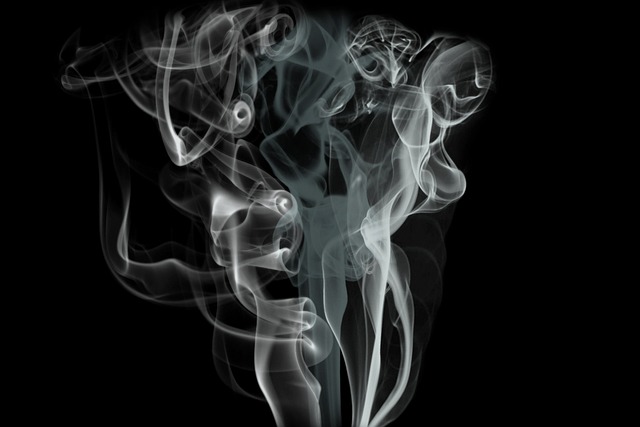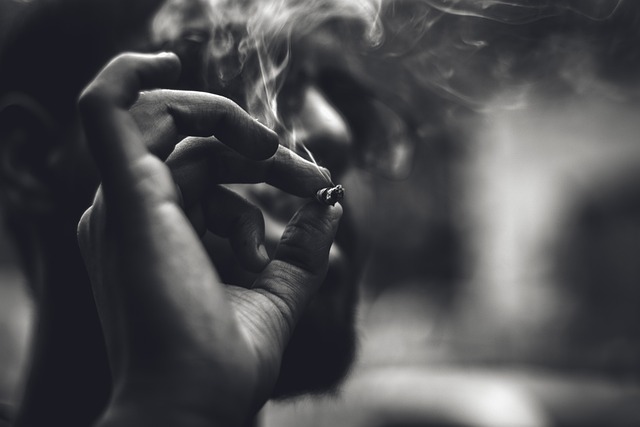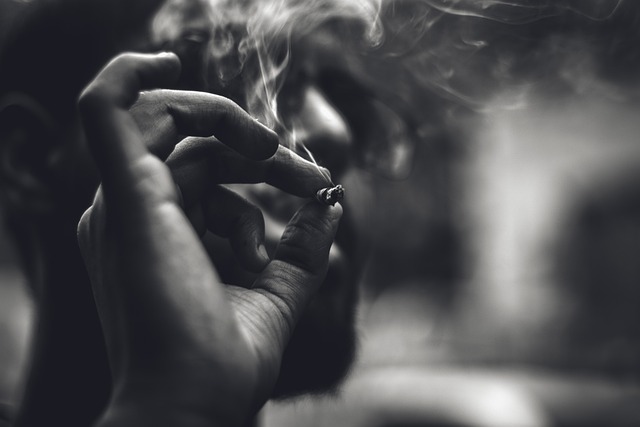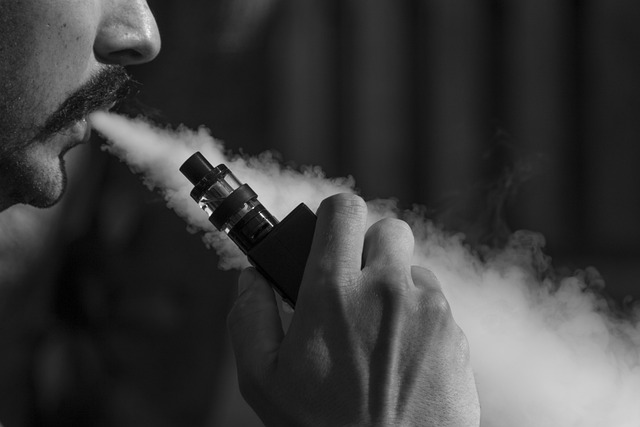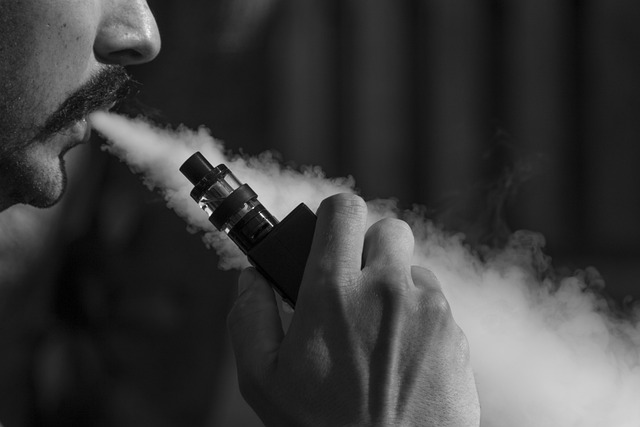Smoking After Wisdom Teeth: Timing and Tips
Smoking can be a tough habit to break, and the mere thought of having to abstain from it after wisdom teeth extraction can be daunting. But fear not, for we are here to shed light on the timing and tips for smoking after wisdom teeth removal. Armed with expert knowledge and a neutral perspective, we will guide you through this crucial period, ensuring a confident and comfortable recovery. So, if you’re eager to learn how to navigate the post-extraction smoking dilemma, read on for essential information and valuable tips that will put your mind at ease.
1. Understanding the Importance of Timing: When Can I Smoke After Wisdom Teeth Extraction?
After wisdom teeth extraction, timing is crucial when it comes to smoking. It is essential to allow your mouth to heal properly before resuming your smoking habits. Here are some key points to help you understand the importance of timing in regards to smoking after wisdom teeth extraction:
1. Delay smoking for at least 48 hours: It is highly recommended to refrain from smoking for the first 48 hours after wisdom teeth extraction. Smoking can hinder the healing process and increase the risk of complications such as dry socket, infection, and delayed healing. Giving your mouth a couple of days to heal without the irritants present in tobacco smoke can significantly reduce these risks.
2. Avoid smoking for at least a week: While waiting for the initial 48 hours is crucial, it is even better to completely avoid smoking for at least a week after wisdom teeth extraction. This extended period allows for better healing and reduces the chances of developing complications. Remember, smoking introduces harmful chemicals and heat to the surgical site, which can disrupt blood clot formation and delay the healing process.

2. The Healing Process: How Long Should I Wait before Smoking after Wisdom Teeth Removal?
After wisdom teeth removal, it is crucial to give your mouth enough time to heal before resuming any habits that could hinder the healing process. One common question that patients often ask is how long they should wait before smoking. Although it may be tempting to light up a cigarette or take a drag from a vape, it is essential to understand the potential risks and complications that smoking can cause during the healing period.
Here are a few important points to consider:
- Increased risk of infection: Smoking after wisdom teeth removal can increase the risk of developing an infection in the extraction site. The act of smoking introduces harmful bacteria and irritants into your mouth, which can interfere with the healing process and lead to complications.
- Delayed healing: Nicotine and other chemicals present in cigarettes can constrict blood vessels and reduce blood flow to the surgical site. This can slow down the healing process and prolong your recovery time.
- Dry socket: One of the most common complications after wisdom teeth removal is dry socket, which occurs when the blood clot that forms in the extraction site becomes dislodged or dissolves too early. Smoking can increase the risk of developing dry socket, as the suction created while inhaling can dislodge the blood clot.
Given these risks, it is recommended to avoid smoking for at least 72 hours after wisdom teeth removal. However, it is important to note that every individual’s healing process is unique, and it may take longer for some individuals to fully recover. It is best to consult with your oral surgeon or dentist to determine the appropriate waiting period based on your specific circumstances.

3. Potential Risks and Complications: Why Smoking After Wisdom Teeth Extraction is Discouraged
Smoking after wisdom teeth extraction is highly discouraged due to the potential risks and complications it can cause. It is important to understand the detrimental effects smoking can have on the healing process and overall oral health. Here are some key reasons why smoking should be avoided after wisdom teeth extraction:
- Delayed Healing: Smoking introduces harmful chemicals and toxins into the mouth, which can impede the healing process. These substances can interfere with the formation of blood clots, which are crucial for proper wound healing. As a result, smoking can significantly prolong the recovery period and increase the risk of complications such as infection.
- Increased Risk of Dry Socket: Dry socket, also known as alveolar osteitis, is a painful condition that occurs when the blood clot that normally forms after tooth extraction becomes dislodged or dissolves prematurely. Smoking is a major risk factor for developing dry socket. The act of smoking creates suction in the mouth, which can disturb the blood clot and hinder the healing process. Patients who smoke are much more likely to experience the discomfort and prolonged healing associated with dry socket.
Given these potential risks, it is strongly advised to refrain from smoking or using any tobacco products for at least 48 to 72 hours after wisdom teeth extraction, if not longer. It is important to prioritize your oral health and follow the post-operative instructions provided by your dentist or oral surgeon. By avoiding smoking during the recovery period, you can promote optimal healing, minimize complications, and ensure a smooth and comfortable recovery process.

4. Helpful Tips for Smokers: Managing Nicotine Cravings after Wisdom Teeth Surgery
After undergoing wisdom teeth surgery, managing nicotine cravings can be challenging for smokers. Here are some helpful tips to assist you in curbing those cravings:
1. Find alternative coping mechanisms: Instead of reaching for a cigarette, try engaging in other activities that can distract you from the cravings. This could include going for a walk, practicing deep breathing exercises, or enjoying a favorite hobby. Finding healthier ways to cope with stress and anxiety can greatly reduce the desire to smoke.
2. Keep yourself hydrated: Drinking plenty of water can help alleviate cravings. Not only does it keep your mouth moist, but it also helps flush out toxins from your body. Sip on water throughout the day and carry a water bottle with you to ensure you stay hydrated. Additionally, try avoiding caffeine and alcohol, as they can intensify cravings.

5. Alternative Options: Exploring Smokeless Products during the Recovery Period
During the recovery period, it is essential to explore alternative options to traditional smoking that can help reduce health risks and support your journey towards a smoke-free life. Smokeless products offer a viable solution for individuals looking to break free from the harmful effects of smoking while still satisfying their nicotine cravings. Here are some alternative options worth considering:
1. Nicotine pouches: These discreet smokeless pouches contain nicotine and are placed between the gum and upper lip. They provide a convenient and tobacco-free way to satisfy nicotine cravings without the need for combustion.
2. Electronic cigarettes: Also known as e-cigarettes or vapes, these devices heat a liquid containing nicotine into an aerosol that is inhaled. They offer a smoke-free experience while still delivering nicotine, allowing users to gradually reduce their nicotine intake over time.
3. Chewing tobacco alternatives: If you prefer oral tobacco, there are various alternatives to traditional chewing tobacco available. These products are designed to provide a similar experience without the harmful effects of smoking or chewing tobacco.
By exploring these smokeless alternatives, you can find a method that suits your preferences and supports your recovery journey. Remember, it is important to consult with a healthcare professional or seek advice from a tobacco cessation program to determine the most suitable option for your specific needs and goals.
6. Professional Advice: Consulting Your Dentist about Smoking after Wisdom Teeth Extraction
After wisdom teeth extraction, it is crucial to consult your dentist about smoking. Your dentist is a trusted professional who can provide expert advice tailored to your specific needs. Here are some important points to discuss with your dentist:
- Healing process: Your dentist can explain how smoking can affect the healing process after wisdom teeth extraction. Smoking introduces harmful chemicals into your mouth, which can delay the healing of the extraction site and increase the risk of complications.
- Increased risk of dry socket: Dry socket is a common complication after wisdom teeth removal. Smoking can significantly increase the risk of developing dry socket, a painful condition where the blood clot that forms in the extraction site dislodges or dissolves prematurely.
- Alternative nicotine delivery methods: If you are a smoker, your dentist can suggest alternative nicotine delivery methods that may be less harmful to your healing process. These options, such as nicotine patches or gum, can help you manage nicotine cravings without the negative impact of smoking.
Remember, every individual is different, and your dentist will provide personalized advice based on your specific circumstances. Consulting your dentist about smoking after wisdom teeth extraction is an essential step towards ensuring a smooth and successful recovery.
7. Staying Smoke-Free: Embracing a Healthy Lifestyle after Wisdom Teeth Removal
After undergoing wisdom teeth removal, it is important to adopt a healthy lifestyle to promote a smooth recovery and maintain overall well-being. Here are some key tips and practices to help you stay smoke-free and embrace a healthier lifestyle:
Avoid smoking: Smoking can significantly hinder the healing process after wisdom teeth removal. It can increase the risk of infections, delay healing, and cause dry sockets. Make a commitment to yourself to refrain from smoking or using any tobacco products during the recovery period.
Find alternative coping mechanisms: Since smoking may have been a way for you to cope with stress or anxiety, it’s important to find healthier alternatives. Consider engaging in activities that help you relax and distract your mind, such as deep breathing exercises, yoga, meditation, or taking walks in nature. These activities can promote relaxation and reduce the urge to smoke.
- Maintain a nutritious diet: Proper nutrition plays a crucial role in your recovery. Focus on consuming a well-balanced diet consisting of foods rich in vitamins and minerals, such as fruits, vegetables, lean proteins, and whole grains. Avoid consuming foods and beverages that can hinder healing, such as spicy or acidic foods, carbonated drinks, and alcohol.
- Stay hydrated: Drinking an adequate amount of water is essential for your overall health and recovery. It helps keep your mouth clean, prevents dry mouth, and aids in healing. Aim to drink at least 8 cups of water per day, and avoid sugary or acidic drinks that can damage your teeth and gums.
- Maintain good oral hygiene: Keeping your mouth clean is crucial during the recovery period. Gently brush your teeth twice a day using a soft-bristled toothbrush and fluoride toothpaste. Rinse your mouth with warm saltwater solution after meals to reduce bacteria and promote healing. Avoid using mouthwash containing alcohol, as it can irritate the surgical sites.
Frequently Asked Questions
Q: What is the recommended timing for smoking after wisdom teeth extraction?
A: It is strongly advised to refrain from smoking for at least 72 hours after wisdom teeth extraction.
Q: Why is it important to avoid smoking during this time?
A: Smoking can have detrimental effects on the healing process after wisdom teeth extraction. It can impede blood flow to the surgical site, delay the formation of blood clots, and increase the risk of infection.
Q: Can smoking affect the speed of recovery after wisdom teeth extraction?
A: Yes, smoking can significantly prolong the recovery time after wisdom teeth extraction. It can delay the healing process, increase pain, and potentially lead to complications.
Q: What are the potential risks associated with smoking after wisdom teeth removal?
A: Smoking after wisdom teeth extraction can increase the risk of developing a condition called dry socket, which is an extremely painful condition where the blood clot that forms at the extraction site dislodges or dissolves.
Q: How does smoking impact the formation of blood clots?
A: Smoking constricts blood vessels and decreases blood flow, which can interfere with the formation of blood clots. Blood clots are crucial for the healing process as they protect the extraction site and promote tissue regeneration.
Q: Are there any alternatives to smoking that can be used during the recovery period?
A: Yes, to aid in the recovery process, nicotine patches or nicotine gum can be considered as alternatives to smoking. However, it is always best to consult with your dentist or oral surgeon before using these alternatives.
Q: When can I safely resume smoking after wisdom teeth removal?
A: It is recommended to wait at least one week before resuming smoking after wisdom teeth extraction. However, it is important to consult with your dentist or oral surgeon to determine the best timeline based on your specific case.
Q: What are some tips to follow if I choose to smoke after the recommended recovery period?
A: If you decide to smoke after the recommended recovery period, it is essential to keep the following tips in mind:
1. Take it slow and avoid deep inhalation.
2. Rinse your mouth gently with warm saltwater after smoking to help minimize the risk of infection.
3. Ensure you maintain excellent oral hygiene by brushing gently and avoiding the extraction site.
4. Stay vigilant for any signs of complications such as increased pain, swelling, or bleeding, and seek immediate dental attention if they occur.
Q: Can smoking impact the success of the wisdom teeth extraction procedure?
A: While smoking itself does not directly impact the success of the procedure, it can significantly affect the healing process and increase the risk of complications. It is crucial to follow the recommended guidelines to ensure a successful recovery.
Insights and Conclusions
In conclusion, timing and proper care are crucial when it comes to smoking after wisdom teeth removal. Remember, it is advisable to wait at least 72 hours before smoking to allow for proper healing and minimize the risk of complications. Additionally, avoid using cigarettes or any other tobacco products, as they can hinder the healing process and increase the likelihood of infection. Instead, opt for alternative methods such as nicotine patches or gums if necessary. Keep in mind that every individual’s healing process may vary, so it is always best to consult with your dentist or oral surgeon for personalized advice. By following these tips and being mindful of your oral health, you can ensure a smooth recovery after your wisdom teeth extraction.
